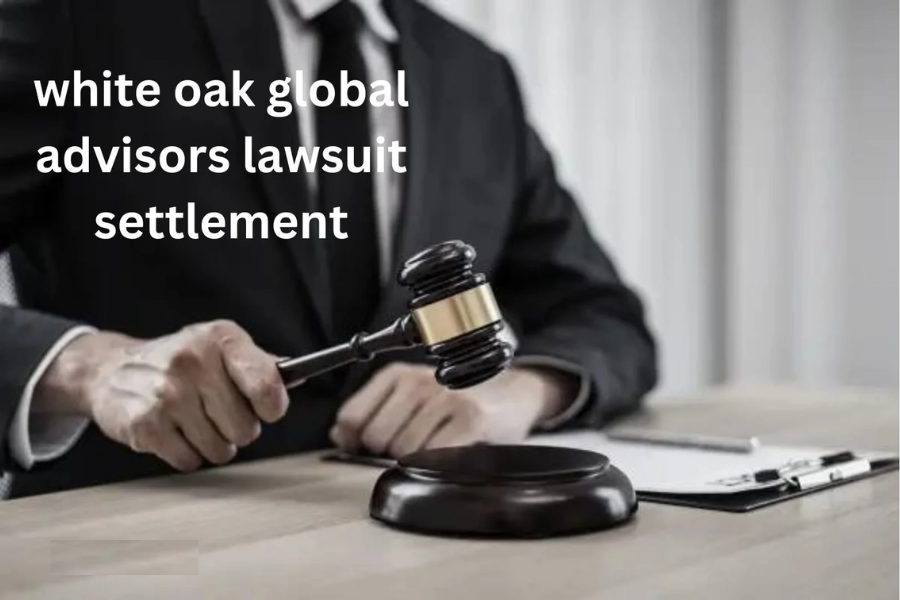White Oak Global Advisors Lawsuit Settlement: A Comprehensive Analysis
Introduction
In the intricate world of finance, trust is foundational, especially when it concerns the management of retirement funds. The recent lawsuit involving White Oak Global Advisors and the New York State Nurses Association Pension Plan (NYSNA) underscores the critical importance of fiduciary responsibility and ethical investment practices. This blog post delves into the details of the White Oak Global Advisors lawsuit, including the alleged mismanagement, the court’s decision, and the broader implications for the financial services industry.
The Lawsuit: Allegations and Claims
In 2018, the NYSNA Pension Plan, tasked with securing the retirement funds of thousands of New York nurses, initiated legal proceedings against White Oak Global Advisors. The lawsuit alleged several serious infractions:
Mismanagement of Plan Assets
The NYSNA Pension Plan contended that White Oak Global Advisors failed to manage the plan’s assets responsibly. This alleged mismanagement was said to jeopardize the financial stability and growth of the pension fund, which is crucial for the future security of its beneficiaries.
Undisclosed Negotiations
Another significant issue highlighted in the lawsuit was White Oak’s involvement in undisclosed negotiations related to a high-level executive position. This lack of transparency raised concerns about potential conflicts of interest, further exacerbating the issue of trust.
Breach of Fiduciary Duty
At the heart of the lawsuit was the alleged breach of fiduciary duty. Under the Employee Retirement Income Security Act (ERISA), investment advisors are mandated to act solely in the best interests of plan beneficiaries. The NYSNA Pension Plan argued that White Oak Global Advisors’ actions violated this duty, putting the beneficiaries’ financial interests at risk.
The lawsuit, with its serious allegations, emphasized the necessity for rigorous oversight and ethical practices in investment management.
Arbitration and the Court’s Decision
The lawsuit progressed through arbitration, a common alternative dispute resolution method. The arbitrator, after reviewing the evidence presented by both parties, rendered a significant decision in favor of the NYSNA Pension Plan.
Arbitrator’s Ruling
The arbitrator’s decision affirmed many of the concerns raised in the lawsuit. It concluded that White Oak Global Advisors had indeed engaged in prohibited transactions under ERISA, specifically citing mismanagement of plan assets and lack of transparency regarding executive negotiations.
As a result, White Oak Global Advisors was ordered to pay over $96 million to the NYSNA Pension Plan. This amount represented the mismanaged assets, and the firm was also required to forfeit all management fees earned during the period of misconduct. Additionally, the arbitrator mandated that White Oak Global Advisors cover the legal costs incurred by the NYSNA Pension Plan throughout the litigation.
Federal Court Confirmation
Seeking further validation, the NYSNA Pension Plan pursued confirmation of the arbitration award in federal court. In 2022, Judge Lewis A. Kaplan of the U.S. District Court for the Southern District of New York upheld the arbitration award. Judge Kaplan’s ruling reinforced the severity of White Oak Global Advisors’ misconduct and marked a significant victory for the NYSNA Pension Plan.
The Importance of Fiduciary Duty in Investment Management
The White Oak Global Advisors case underscores the crucial role of fiduciary duty in investment management. ERISA sets forth clear guidelines to ensure that investment advisors prioritize the best interests of beneficiaries. Key aspects of fiduciary duty include:
Prudent Investment Practices
Investment advisors are required to adhere to a prudent investor standard. This involves a careful evaluation of investment options and an effort to mitigate risk for plan assets. The White Oak case highlighted failures in this area, with allegations of imprudent investment decisions leading to financial losses.
Loyalty and Good Faith
Advisors must act with undivided loyalty and in good faith toward the beneficiaries, avoiding any actions that could benefit them personally or create conflicts of interest. The undisclosed negotiations in the White Oak case were a clear breach of this principle.
Full Disclosure
Transparency is vital. Advisors must disclose all pertinent information regarding fees, investment strategies, and potential conflicts of interest. The lack of transparency in White Oak’s dealings was a central issue in the lawsuit, demonstrating a failure to meet this critical fiduciary requirement.
The Impact on the Financial Industry
The White Oak Global Advisors lawsuit has had significant repercussions across the financial services industry.
Increased Scrutiny and Regulation
The case has intensified scrutiny of investment firms and highlighted the need for stricter regulatory oversight. It has prompted discussions about enhancing regulations to prevent similar instances of misconduct in the future.
Catalyst for Change
The lawsuit serves as a catalyst for positive change, advocating for improved transparency and stricter enforcement of fiduciary duties. The financial industry is now more aware of the consequences of unethical practices, which may lead to better protection mechanisms for investors.
Protecting Pension Funds and Beneficiary Interests
The White Oak case offers valuable lessons for safeguarding pension funds and ensuring the well-being of beneficiaries. Key takeaways include:
Importance of Due Diligence
Pension plan administrators must conduct comprehensive due diligence when selecting investment advisors. This process should include a thorough examination of the advisor’s track record, investment philosophy, and commitment to fiduciary responsibility.
Active Oversight
Active monitoring of investment advisors is essential. Administrators should ensure adherence to agreed-upon investment strategies and ethical standards to prevent potential misconduct.
Regular Communication
Maintaining open lines of communication between administrators and beneficiaries fosters transparency and helps keep beneficiaries informed about their retirement security.
Steps for Holding Investment Firms Accountable
Investors who suspect misconduct by their advisors can take several steps:
Reviewing Investment Performance
Regularly monitoring investment performance is crucial. Significant deviations from expected returns or investment strategies may warrant further investigation.
Scrutinizing Fees
Understanding the fees associated with investment services is important. Unexplained or excessive fees can indicate potential misconduct.
Seeking Clarification
Investors should not hesitate to contact their advisors for clarification on investment decisions and fee structures. If concerns persist, they can escalate them to relevant regulatory bodies or consult with a securities law attorney.
The Role of Regulators
Regulators play a vital role in maintaining ethical investment practices and enforcing ERISA compliance. They can contribute by:
Proactive Investigations
Regulatory bodies should actively investigate potential ERISA violations rather than relying solely on investor complaints.
Imposing Meaningful Sanctions
Penalties for ERISA violations should be severe enough to deter misconduct. This could involve increased fines, license suspensions, or criminal charges in extreme cases.
Collaboration and Information Sharing
Enhanced collaboration and information sharing among regulatory bodies can improve investor protection and regulatory effectiveness.
White Oak Global Advisors’ Response
Throughout the legal proceedings, White Oak Global Advisors maintained their innocence. They may have:
Contested Allegations
The firm might have argued that their investment strategies were sound and that the undisclosed negotiations were not improper.
Highlighted Track Record
White Oak could have pointed to their past performance to demonstrate their commitment to responsible management practices.
Expressed Disagreement with Settlement
It’s possible that White Oak Global Advisors disagreed with the settlement terms but chose to avoid further litigation costs and potential reputational damage.
Reactions to the White Oak Case
The case has elicited various reactions within the investment industry:
Investment Law Specialists
Lawyers specializing in investment law may view the case as a precedent-setting example of holding advisors accountable for fiduciary breaches.
Financial Regulators
Regulatory bodies might see the case as a reminder of the need for stricter oversight and advocate for enhanced investor protection measures.
Investment Advisors
Ethical advisors may view the case as a reinforcement of the importance of upholding fiduciary duties and prioritizing client interests.
The Future of ERISA Enforcement
Following the White Oak settlement, discussions about potential reforms to ERISA enforcement are anticipated:
Strengthening Fiduciary Duty Standards
Clarifying and strengthening fiduciary duty standards under ERISA can provide greater protection for plan beneficiaries.
Increased Resources for Regulators
Regulatory bodies may require additional resources to effectively monitor and investigate potential violations.
Enhanced Whistleblower Protections
Strengthening protections for whistleblowers can encourage reporting of suspected misconduct.
Potential Consequences for White Oak Global Advisors
Beyond the financial settlement, White Oak Global Advisors may face additional consequences:
Reputational Damage
The lawsuit and settlement could tarnish the firm’s reputation, potentially affecting their ability to attract new clients.
Regulatory Scrutiny
The case might lead to increased scrutiny from regulatory bodies and further investigations.
Difficulty Retaining Clients
Existing clients may lose confidence in White Oak Global Advisors’ management practices and seek alternative investment services.
Safeguarding Retirement Security
The White Oak case highlights the importance of informed investors:
Understanding Investment Strategies
Investors should be well-informed about the strategies employed by their advisors and associated risks.
Regularly Reviewing Performance
Monitoring investment performance and asking questions if returns fall short is essential.
Scrutinizing Fees
Understanding and questioning fees is crucial to identifying potential misconduct.
Maintaining Open Communication
Investors should maintain open communication with their advisors to stay informed and address any concerns.
Trust and Transparency in the Investment Landscape
To rebuild trust and transparency in the investment industry, several measures can be taken:
Enhanced Disclosure Requirements
Investment advisors should provide comprehensive disclosures regarding fees, strategies, and potential conflicts of interest.
Prioritizing Investor Education
Educational initiatives can empower investors to make informed decisions and actively manage their retirement security.
Holding Advisors Accountable
Robust enforcement mechanisms are necessary to hold advisors accountable for breaches of fiduciary duty.
Conclusion
The White Oak Global Advisors lawsuit settlement serves as a stark reminder of the significance of ethical investment practices and strong oversight within the financial industry. It highlights the need for investment advisors to prioritize fiduciary duties, for regulators to enforce ERISA regulations rigorously, and for investors to be proactive in understanding and monitoring their investments.
By working collectively, stakeholders can foster a more transparent and secure investment environment, ultimately protecting the retirement security of millions of Americans. The case stands as a testament to the ongoing need for vigilance and integrity in the management of retirement funds and financial services.

